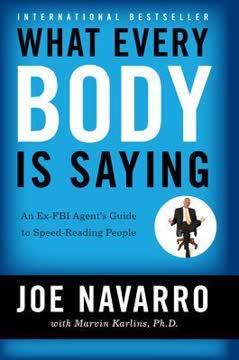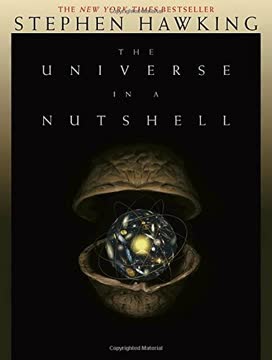Key Takeaways
1. Master Your Memory: The Foundation of Effective Learning
Memory is intrinsically related to the concept of learning-this being the knowledge and reasoning of that which is memorized.
Memory types matter. Understanding the different types of memory - short-term, mid-term, and long-term - is crucial for effective learning. Visual memory is the most powerful, followed by auditory memory. The key to mastering memory lies in creating strong associations and using techniques like:
- Mental charts: Organize information into structured diagrams
- Far-fetched associations: Create unique, memorable connections between facts
- Repetition: Reinforce information through strategic review
Developing these skills allows you to transform raw information into lasting knowledge, enabling you to recall and apply it effectively in various situations.
2. Unleash the Power of Photographic Reading
We can read 1,000 words/minute, but if we are watching a movie at the cinema, we can retain information and facts that would be equivalent to 60,000 words/minute.
Speed meets comprehension. Photographic reading is not just about speed; it's about enhancing comprehension and retention. To develop this skill:
- Use a visual aid (like a pen) to guide your eyes
- Practice capturing groups of words at a time
- Aim for a "mental video" sensation as you read
By mastering photographic reading, you can dramatically increase your reading speed while maintaining or even improving comprehension. This skill is invaluable for students and professionals alike, allowing you to process vast amounts of information efficiently.
3. Craft Your Personal Study System for Maximum Retention
With our summaries and our mental maps, we will have completed our personal subject matter.
Personalize your approach. Creating an effective study system involves three key components:
- Personalization of subject matter:
- Create concise summaries
- Develop mental maps for visual organization
- Memorization:
- Use far-fetched associations for pure facts
- Apply reasoning for sequential facts
- Strategic review:
- Initial reviews to solidify basic understanding
- Conferential reviews to deepen knowledge
- Final reviews to ensure comprehensive mastery
This system allows you to transform complex subjects into manageable, memorable units of information. By tailoring your study materials and methods to your personal learning style, you maximize retention and understanding.
4. Conquer Exams: Strategies for Different Test Types
It is much better to write a little on each question rather than to brilliantly respond to half of them, leaving the rest blank and unanswered.
Adapt to the format. Different exam types require different strategies:
Essay and Short-Answer Exams:
- Read questions thoroughly
- Organize your time wisely
- Use clear, concise language
Multiple Choice Tests:
- Answer questions you're sure about first
- Use process of elimination
- Apply mathematical probability for guessing
Oral Exams:
- Practice with a video camera
- Speak slowly and clearly
- Use sophrology techniques to manage nerves
By understanding the nuances of each exam type and applying targeted strategies, you can maximize your performance and showcase your knowledge effectively.
5. Harness Your Mind's Potential: Psychometric Tests Demystified
These tests are made to evaluate the intelligence of the person who is taking them.
Understand the assessment. Psychometric tests, including intelligence and personality assessments, are increasingly common in academic and professional settings. Key points to remember:
Intelligence Tests:
- Focus on logical reasoning and pattern recognition
- Practice with numeric sequences, dominoes, and diagrammatic problems
Personality Tests:
- Answer honestly but strategically
- Be consistent in your responses
- Consider the desired traits for the position you're applying for
By familiarizing yourself with these tests and practicing regularly, you can approach them with confidence and showcase your true potential.
6. Overcome Test Anxiety: Psychological Preparation for Success
The psychological factor can normally influence our performance on an exam, making it vary between 60 and 90% of our maximum possible performance level.
Mind over matter. Psychological preparation is crucial for exam success. To overcome test anxiety:
- Develop a positive mindset towards exams
- Practice relaxation techniques regularly
- Visualize success and maintain self-confidence
Remember that nervousness is a natural response, but excessive worry can hinder performance. By focusing on preparation and maintaining a calm, confident attitude, you can significantly improve your exam performance and overall well-being.
7. Transform Worry into Action: The Key to Personal Growth
Worry is the detonator of the worst problems in every society.
Channel energy productively. Worry is often counterproductive and can lead to negative outcomes. Instead of worrying:
- Focus on what you can control
- Take decisive action to address concerns
- Reframe challenges as opportunities for growth
By transforming worry into proactive steps, you not only improve your immediate situation but also develop resilience and problem-solving skills that benefit you in all areas of life. Remember, every challenge is an opportunity to learn and grow stronger.
Last updated:
Review Summary
Maximize Your Memory receives mixed reviews, with an average rating of 3.68/5. Many readers find the memory techniques and study strategies useful, especially for students and exam preparation. The book's strengths include practical exercises, clear explanations, and tips for improving reading speed and retention. Some reviewers appreciate the psychological insights and exam-taking advice. However, a few readers consider the content basic or obvious. Overall, most readers recommend the book for students and those looking to enhance their memory and study skills.
Similar Books
Download PDF
Download EPUB
.epub digital book format is ideal for reading ebooks on phones, tablets, and e-readers.






